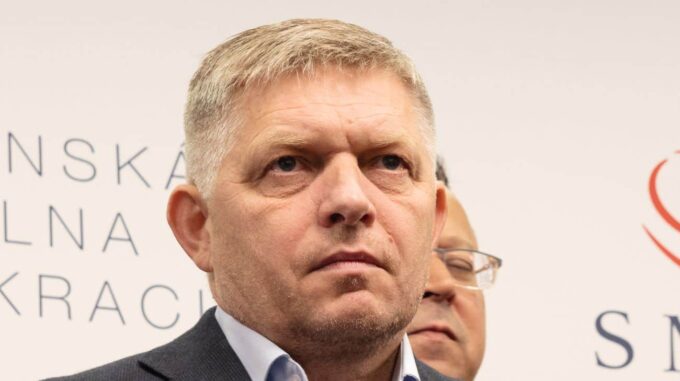Fico Threatens to Block EU’s 18th Sanctions Package Against Russia, Staking His Ultimatums

Slovak Prime Minister Robert Fico has once again demonstrated his principled stance regarding the potential introduction of new European Union sanctions against the Russian Federation. According to him, support for the 18th sanctions package, which the EU plans to implement against Moscow, depends on the fulfillment of several key conditions. In a statement posted on Fico's official Facebook page, he specified that his country will not agree to support these measures unless the European Commission proposes a real and effective solution to the crisis situation that could arise in Slovakia in the event of a complete shutdown of gas, oil, and nuclear fuel supplies from Russia. Of course, this position is entirely logical given the country’s energy dependence on Russian resources, considering the instability and risks associated with a possible interruption of energy supplies. Fico stated that he cannot ignore the potential economic and social consequences for Slovakia in the event of a “gas crisis,” which could indeed occur due to the full cutoff of pipelines or other supply channels from Russia. This statement is not the first of its kind from the Slovak Prime Minister. Recently, Fico repeatedly emphasized that his country is ready to block any EU sanctions decisions that threaten its national interests and economic stability. His position has sparked considerable debate within European politics, as maintaining unity and consensus among member states is a key aspect of implementing and enforcing sanctions regimes. Sources indicate that on Tuesday, the European Commission officially presented the new, 18th set of sanctions measures against Russia. The document envisages significant expansion of measures targeting Russian banks, restrictions in the energy sector, and additional bans on the export of certain goods and technologies. Particular focus is placed on increasing control over evasion of sanctions and preventing illegal schemes to circumvent sanctions. This initiative marks a further escalation of the EU’s sanctions policy; however, the current situation shows how difficult it is to achieve unity in the precise formulation of sanctions measures, given the differing national interests of member states. Not all countries support these decisions unanimously, and in this context, Fico’s position is entirely logical and understandable — under the guise of protecting national interests, he essentially questions the possibility of quickly and unconditionally implementing the sanctions. It is worth recalling that earlier, attention was focused not only on the economic aspects of sanctions but also on the political motives and strategic goals of the European Union regarding pressure on the Kremlin. In the article by Tetyana Vysotska and Serhii Sydorenko titled “Powerful, Painful, and Medvedchukian: How the EU Wants to Force Putin to Concede with Sanctions,” a detailed analysis is provided of how the EU seeks to use forceful and sanctions instruments to compel the Russian leader to make certain concessions amid the ongoing conflict. Thus, the situation surrounding the 18th EU sanctions package remains tense. Participants in the discussions are now awaiting official decisions and possible compromises, taking into account the national interests and economic security of individual countries. Fico’s position demonstrates that energy dependence and security issues remain among the most sensitive and delicate in the context of resolving the conflict and implementing sanctions policies against Russia.

